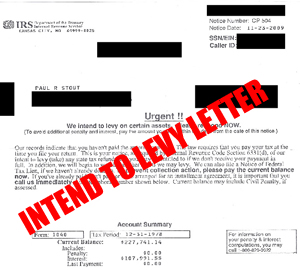According to Law360, the Internal Revenue Service went beyond the cap on civil penalties it can assess for undisclosed offshore bank accounts, a Texas federal judge has ruled, rejecting the agency’s argument that regulations limiting the amount are implicitly invalid.
The IRS had sued a Texas man to collect hundreds of thousands of dollars in unpaid civil penalties, plus interest, for the taxpayer’s allegedly willful failure to report offshore accounts on Foreign Bank and Financial Accounts forms for 2007 through 2010.
But U.S. District Judge Sam Sparks was not swayed, concluding in a decision filed on May 16, 2018 that there is little reason to believe the legislative amendment in 2004 “implicitly superseded or invalidated” the 1987 regulation under 31 CFR § 103.57, which was later renumbered as CFR § 1010.820.In granting partial summary judgment to the taxpayer, Dominique Colliot, Judge Sparks found that the section at issue is a valid regulation that caps penalties for willful violations of foreign bank account reporting at $100,000.
According to the IRS’ December 2016 complaint, Colliot failed to report several foreign bank accounts, including Barclays in the U.K, UBS AG in Switzerland and Societe Generale in France. Accusing Colliot of willfully skirting FBAR requirements, the agency claimed he owed $917,447 in penalties, plus interest.
The IRS had calculated the penalties under 31 U.S.C. § 5321, which Congress in 2004 had amended to increase the maximum civil penalties for willful failure to file a FBAR. Under the revised statute, willful violations can lead to a penalty that is either $100,000 or 50 percent of the balance in the foreign account, whichever is more.
However, Judge Sparks concluded that the regulations under CFR § 1010.820, promulgated under the prior version of 31 U.S.C. § 5321, remained unchanged. Thus, he said, the rules kept the maximum civil penalty for willful failure to file an FBAR at $100,000.
Judge Sparks added that the Financial Crimes Enforcement Network, a branch of the Treasury Department, did not revise § 1010.820 to account for the increased maximum penalty now allowed under the changes to 31 U.S.C. § 5321.
“Nevertheless, the IRS did not let § 103.57 (now § 1010.820) constrain its enforcement authority, and since 2004, the IRS has repeatedly levied penalties for willful FBAR violations in excess of the $100,000 regulatory cap,” Judge Sparks said.
“And § 1010.820, a regulation validly issued by the Treasury via notice-and-comment rulemaking, purports to cabin that discretion by capping penalties at $100,000,” he said.
While Judge Sparks found the IRS cannot exceed the $100,000 penalty threshold, he declined Colliot’s bid to toss the case entirely, instead ordering the parties to provide additional briefing on the appropriate next steps.
If You Do Not Enter The OVDP Program?
Read more at: Tax Times blog
















